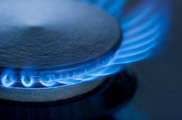The results of a new survey have cast doubt over the commonly held belief that low-energy users pay less for electricity and gas central heating.
 According to Which?, domestic customers who purchase relatively few units of energy do so at a greater cost than those who require more units. In some cases, low-usage households are paying 30 per cent more for gas and electricity than standard-rate users.
According to Which?, domestic customers who purchase relatively few units of energy do so at a greater cost than those who require more units. In some cases, low-usage households are paying 30 per cent more for gas and electricity than standard-rate users.
The survey discovered that many customers paid a high price for managing to limit their reliance on gas and electricity. Energy-saving measures such as replacing old boilers and installing loft insulation are capable of improving energy conservation throughout the home, but where is the incentive for households if customers are charged more for using less?
Energy suppliers have made an attempt to justify the apparent price discrepancy by insisting that there is a fixed cost for supplying energy to a home. If usage happens to be exceptionally low, the energy firms argue, the per-unit cost of energy is increased to cover the base cost of supply.
Which? responded: “This doesn’t explain why it costs some companies more than others, or why for some companies it’s worse than it used to be”.
The Which? survey found that Npower charged low-usage customers more for gas than any other supplier. Per unit of gas, the firm charged low users 35 per cent more than normal or high-usage customers, who enjoy proportional savings. E.ON proved to be the worst offender for differential electricity costs, charging low-usage customers 34 per cent more per unit.
The difference in rates for low and high-usage consumers is certainly a cause for concern, not least because it predominantly affects low-income, fuel-poor households. On a separate note, government ministers are considering a proposal to change the definition of fuel poverty.
Discussing the move, Energyhelpline’s Mark Todd said: “On the surface, the proposed change to the definition of fuel poverty looks like a government ruse to reduce the number (of people in fuel poverty) without doing anything.
“If fuel poverty is only defined as when fuel costs are above average but household income is below the poverty line, then most fuel-poor people will be immediately ruled out”.


